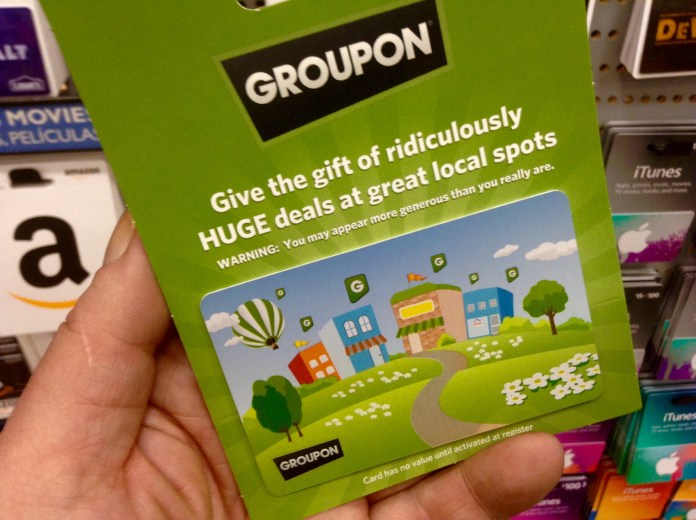When Groupon (and thousands of its clones) entered the market, the message was very attractive to restaurants, spas and other establishments. Giving good discounts to customers, and a good commission to the platform – we will give you the customers that you are eager to get.

Of course, the customers came in droves, only that… they did not come back, unless you give them another heavy discount. Realising this, establishments scaled down, if not stopped altogether, the deals on the platforms. The heavy discounts attracted customers, but mostly the wrong type of customers: those only seeking discounts. Worse, the establishments gained a reputation of ‘cheapness’, making it harder for them to charge sustainable price levels.
Think about it – assume a restaurant has a 30% net margin: giving 50% off for them is already loss making. Even if we take away the fixed overheads such as rent, the restaurant is still hardly profitable (gross).
They wanted group-buy platforms as a customer acquisition tool, NOT a customer custodian

Fast forward a few years, now we all know clearly the group-buy business model, in its purest form, was a fab. Groupon itself is getting from bad to worse: trying and failing to diversify, selling country operations, and trimming staff. But reincarnations of Groupon kept emerging, and disappearing. Anyone in Singapore remembers Sugar – an app that allows you to redeem ‘sweet’ deals at merchants? Well, it folded almost as quickly as it had previously ascended.
Yield management for restaurants?
Then came the more ‘sophisticated’ platforms – the likes of Eatigo. Eatigo claims that it is bringing the concept of yield management – long practised by hotels and airlines – to the restaurants. Instead of offering crude one-size-fit-all price reductions, Eatigo allows restaurants to create time-based discounts. Essentially, the prices go down during non-peak hours; and they might go up during peak hours.

Well, sounds like Uber’s surge pricing doesn’t it? At the moment it is still raw – Eatigo believes that as more data is accumulated, they can eventually reach true yield management. Restaurant owners will truly be transformed into data-driven decision makers. And anyway, restaurants, spas and even supermarkets nowadays are already doing it offline. You would often see banners promoting non-peak hour one-for-one deals in a normal shopping mall across Southeast Asia.
However, I have serious doubts whether this will work. Here I define ‘work’ as helping restaurants generate more profit (and thus be sticky to the platform). Or in simple language: do clients of the platform make more money?
Fundamental differences
First of all, what is yield management? It is maximising revenue (or profit) through dynamically adjusting prices according to supply and demand. Airline prices adjust all the time; hotels do the same; and Uber surges during rainy rush hour.
But can it be applied to restaurants? We doubt so.
- Airlines and hotels offer more or less standardised products, while the variations between dishes offered at different restaurants can be huge. You wouldn’t see a hotel with 25 types of rooms; and a jet has at most four classes of seating.
- Airlines are much more consolidated; so are the hotel chains that actually manage to practise yield management. In comparison, restaurants
- Management at hotel or airline industry is very established, with a lot of data collected and analyses done (and professionals who do all these). Restaurants are often still primitive in this regard.
- Hotels and airlines have more or less fixed inventory, and do not have to worry about issues such as wastage
- Restaurants are highly local. Apart from some upscale ones, most restaurants attract customers in the vicinity – while hotels and airlines get people to travel.
In short, there are fundamental differences that prevent effective transplantation of yield management from hotel/airline industries to restaurants.
Easy Jet vs. Easy Cinema

I am not saying that there will not be a future where restaurants are data driven. Nonetheless, through our recent experiences running O2O businesses dealing with exactly restaurants, spas and other establishments, we hardly see any restaurant owners who care about more than bringing customers who pay (almost) the full price.
I believe it will take a long time to convince them the merits of yield management, if such merits even exist for the restaurant industry. Many of you might have heard of the success of Easy Jet. But have you heard of Easy Cinema – started by the same founder, Stelios Haji-Ioannou, a firm believer of yield management? He tried to apply yield management in many areas, including cinema, and failed. The mechanics and metrics just did not add up. To date, what works for the cinemas is still simple price discrimination: cheaper before 10am, and more expensive during the weekend.
Good product still prevails
Also, so far, have you heard of anyone recommending you a restaurant because it is cheap or because it is data driven? No, what you usually hear in a recommendation is: “the food is really good.” Maybe your friend will add “and it is value for money as well” to his recommendation. But good food is the pre-requisite.

A friend of mine started a restaurant five years ago, extremely successful and almost always booked out. Two years ago he opened another one, dreaming of a franchise empire in the making. However, unlike the first restaurant, the second one rarely has repeat customers, and the revenue is ¼ of the first one, despite being 30% larger.
If you want more customers than your location warrants (natural traffic), you need to think more about having a good product, i.e. great food, than all the platforms. Otherwise, we can conclude that what is feeding the growth of such platforms (Eatigo, Fave, Guavapass) are still the deplorable word – DISCOUNTS.












